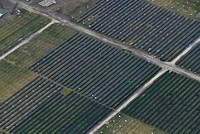Advertisement
Grab your lab coat. Let's get started
Welcome!
Welcome!
Create an account below to get 6 C&EN articles per month, receive newsletters and more - all free.
It seems this is your first time logging in online. Please enter the following information to continue.
As an ACS member you automatically get access to this site. All we need is few more details to create your reading experience.
Not you? Sign in with a different account.
Not you? Sign in with a different account.
ERROR 1
ERROR 1
ERROR 2
ERROR 2
ERROR 2
ERROR 2
ERROR 2
Password and Confirm password must match.
If you have an ACS member number, please enter it here so we can link this account to your membership. (optional)
ERROR 2
ACS values your privacy. By submitting your information, you are gaining access to C&EN and subscribing to our weekly newsletter. We use the information you provide to make your reading experience better, and we will never sell your data to third party members.
Environment
Dow And Gazprom Link For Carbon Reduction
Chemical and energy giants will work together on carbon dioxide reduction projects
by Michael McCoy
June 22, 2009
Dow Chemical and an arm of the Russian energy company Gazprom plan to work together on greenhouse gas reduction projects across the globe. They say they will identify projects for third parties that could cumulatively cut millions of tons of carbon dioxide emissions through the implementation of Dow technologies.
The deal links Dow with Gazprom Marketing & Trading, a London-based subsidiary of the big Russian company. The firms say they will seek projects that qualify for Clean Development Mechanism or Joint Implementation status under the United Nations Framework Convention on Climate Change.
Gazprom says it has already participated in several such projects, in Russia and elsewhere, that have generated carbon credits. Carbon reduction projects entitle participants to a credit, called a certified emission reduction, for each ton of carbon dioxide that doesn't enter the atmosphere. The credits, which can be bought and sold, are worth roughly $16 per ton today.
Dow says its contribution to the venture will be energy efficiency and other technologies that reduce carbon emissions. A spokesman points to amine-based technology for capturing flue gas carbon dioxide as one possible way for Dow to participate. The company is already involved in amine-based carbon capture projects in the U.S. and Europe (C&EN, April 6, page 5).
Rich Wells, Dow's vice president of energy and climate change, says the deal with Gazprom will provide a channel to market for Dow products and technologies. Dow says the certified emission reductions that come out of the projects could be used to meet Dow's own carbon reduction obligations in Europe.
Late in 2007, Dow and Gazprom signed an agreement to study chemical plants in Europe and Russia that would be based on Russian natural gas. The Dow spokesman says the earlier agreement has no connection to the carbon reduction pact.



Join the conversation
Contact the reporter
Submit a Letter to the Editor for publication
Engage with us on Twitter